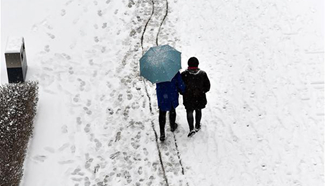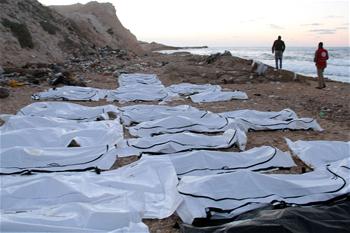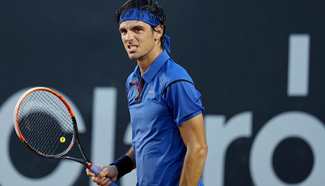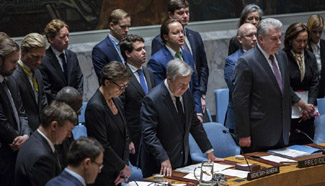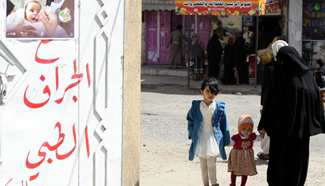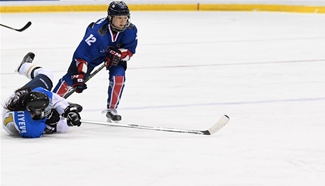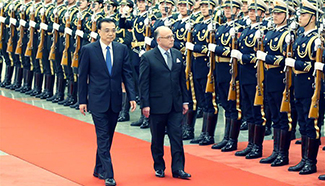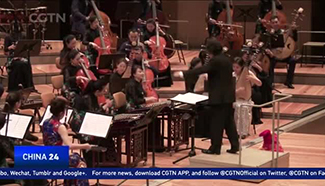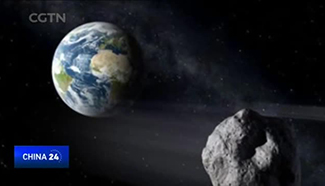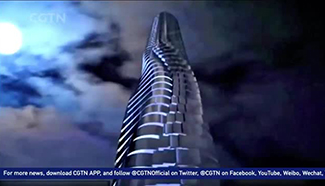by Xinhua writers Guo Ying and Wei Mengjia
BEIJING, Feb. 22 (Xinhua) -- When Chinese President Xi Jinping presented a bronze statue highlighting the acupuncture points on the human body to the World Health Organization in Geneva last month, it drew global attention.
However, Malaysian Pauline Moy has already been deeply familiar with the figure.
A student at the International School of Beijing University of Chinese Medicine (BUCM), she uses a replica to help her memorize the pressure points and practice the techniques.
Formerly an actor, Moy came to the university in 2011 to explore the mystery of "how a needle can relieve pain and cure disease". She took the undergraduate course in acupuncture, moxibustion and tuina, or therapeutic massage used in Traditional Chinese Medicine (TCM).
Now she is pursuing a master's degree in TCM.
Acupuncture is just one component of TCM. To better understand the essence of acupuncture, she has read ancient texts written in classical Chinese, the biggest challenge of her studies.
"Learning those TCM classics is akin to piecing together a jigsaw puzzle. I have to learn the classics 'piece by piece' first. When I master enough TCM knowledge, I can integrate it into clinical practice, which is based on both medical theory and observation," she says.
She is one of a growing number of foreign students of traditional medicine in China. Zhang Daliang, director of the Department of Higher Education of the Ministry of Education, says TCM is the most popular field of natural sciences for foreign students in China.
"TCM has been spread to 183 countries and regions. International education has played an important role in promoting TCM worldwide," says Zhang.
Chelsea Qi Xie from the United States is also a student at the International School of BUCM. She is an overseas Chinese and her mother is a pharmacist. She is studying TCM not only to learn about her cultural roots, but also because it is becoming more accepted in the United States.
"Acupuncture is an alternative therapy with relatively few side effects. Acupuncture services are available in many big hospitals in the United States, and registered acupuncture practitioners must pass formal exams. To my knowledge, there are around 20,000 registered acupuncturists in the state of California alone," Xie says.
BUCM has also established relations with 108 universities and research institutions in 30 countries and regions around the world, boosting the general recognition of TCM abroad.
The TCM master's program offered by BUCM and the University of Barcelona medical school since September 2016 is the first such program officially accredited by the European Union. Meanwhile, in collaboration with Canada's Kwantlen Polytechnic University, BUCM runs the first joint undergraduate degree program in North America.
In cooperation with foreign universities and institutions, it has also set up TCM centers in Russia, Australia, the United States and elsewhere, creating integrated platforms for medical services, education and research.
BUCM president Xu Anlong says that although TCM is popular in many Western countries, more strategies are needed to put it into the international medicine system.
TCM centers have effectively cultivated practitioners around the world, Xu says. "But more importantly, the effectiveness of TCM has won recognition among local people. The center in Russia is very popular and I know some patients drive more than 10 hours to be treated there."
BUCM arranges up to 1,044 hours of clinical practice for undergraduate students, with a variety of experiences woven throughout the learning period.
Moy interned at The Third Affiliated Hospital of BUCM and the China-Japan Friendship Hospital during her undergraduate studies.
When Moy graduates, she plans to open an acupuncture clinic in Malaysia.
"I want more Malaysians to know the wonders of TCM and receive sound TCM medical services," she says.

